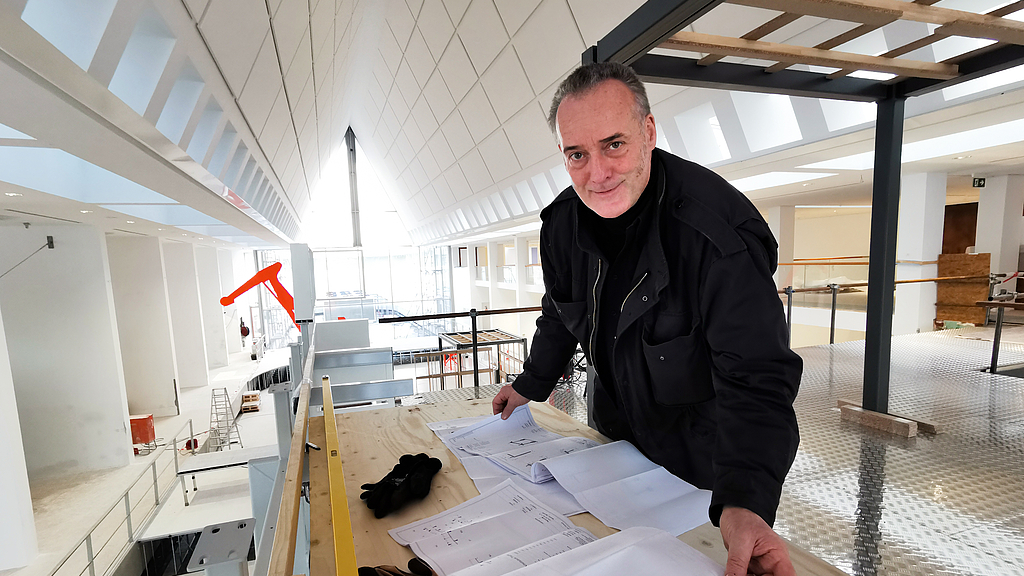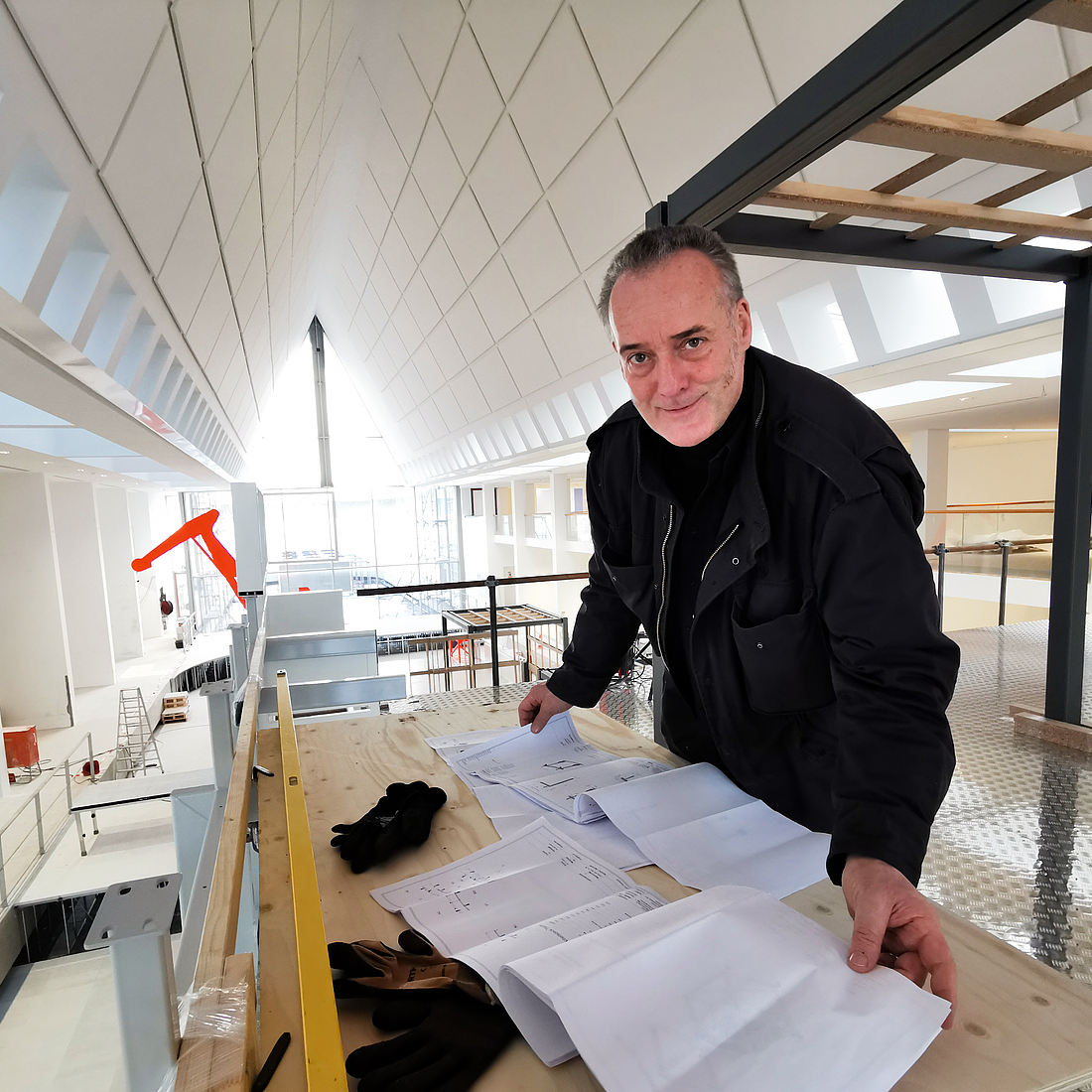Work for new permanent exhibition: research ship in the museum grows daily
The acrid smell of fresh paint is in the air, cordless screwdrivers howl and drive screws into the wood, a mini crane lifts a winch with steel cables through the air - the construction site in the extension of the German Maritime Museum (DSM) / Leibniz Institute for Maritime History is roaring as the permanent exhibition "Ship Realms – The Ocean and Us" is being created. The heart of the new exhibition will be at the centre of the building. A research vessel is currently growing there under the watchful eye of site manager Jakob Florian Lehner. His desk is within sight of the shipyard - as he affectionately calls the construction site.
Jakob Florian Lehner has had a sailing licence since he was a teenager. Even back then, he knew how to skilfully steer the wind on Lake Starnberg into the sails of the family boat. Since November last year, he has been enjoying the fresh breeze on the North Sea - and building his first boat on land. "I've been screwing and repairing the sailing boat for many years, but now I'm working in a shipyard for the first time and building a ship," says Lehner with a smile. As site manager at Kubix, he is coordinating all the trades so that the research vessel installation is ready for exhibition. The keel has already been successfully laid. In the centre of the light-flooded extension, the stylised ship is taking shape day by day. The orange-red antennae and cranes bring back memories of the POLARSTERN. "The special thing is that we are consistently building an exhibit. Objects already exist in museums, of course, but we are now creating a building under construction," says Lehner, who has been coordinating exhibitions in museums and at trade fairs in Germany and abroad for 30 years.
With a length of 34 metres, a width of 7.5 metres and a height of 13 metres, the installation does not come close to the actual dimensions of the POLARSTERN, but a decommissioned deep-sea winch that has been installed ensures that a POLARSTERN feeling is created when boarding. In addition, two towed models from the DSM collection will be making their big show debut. They were used to test the icebreaker's driving qualities and ability to navigate through the ice before its first voyage in the 1980s. Guests will be able to explore three decks from mid-July: In the container on the working deck, researchers will use media stations to explain how they analyse samples in the "floating laboratory". A look into the cargo hold reveals the equipment used to analyse soil samples in the deep sea, for example. From the bridge, guests will soon have a clear view of the entire space.
"We've been working in the DSM with up to 20 people since November. There are around 50 tonnes of steel in the ship, plus the wood," the site manager lists, looking through the nave-like structure, in which more of the research vessel becomes visible every day. "It's almost like real shipbuilding. Frames are put in place, in the end only the hull is missing," says Lehner about the stylised research vessel.
He likes the extension, although there are some challenges lurking there that demand creative ideas from the crew. "We couldn't use heavy equipment for the construction and had to install the steel scaffolding virtually by hand using traditional craft methods. We used pulley blocks, rope and chain hoists. In part, it was similar to the Amish in Philadelphia - we would have liked to have had more technology, but the statics didn't allow it." As a result, Lehner was looking forward to the erection of the mast on the bridge with an increased pulse. However, the team mastered the assembly without any damage to the roof. Afterwards - as has been customary in construction for centuries - the topping-out ceremony took place.
Lehner has marked the middle of March in his logbook - as he calls his construction diary - in the calendar, when the ship is to be symbolically launched. In keeping with maritime tradition, the ship will then be christened. If the passionate sailor had his way, it would be very classic: "Of course, it would have to be christened with a bottle of champagne and the name would simply be 'research vessel'. To appease Neptune, the first sip of rum would have to be poured into the sea after casting off, as I know it. In any case, I wish our ship always a hand's breadth of water under the keel and a safe journey at all times!"
The exhibition "Ship Realms – The Ocean and Us" is scheduled to open in the extension building on 18 July 2024.

Site manager Jakob Florian Lehner on the construction site in the extension building.
Credit: DSM / Annica Müllenberg

